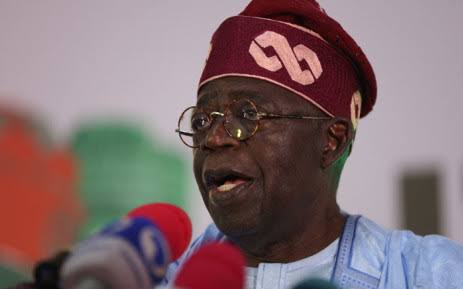
Nigeria unions cancels planned strike against living costs
Nigeria labour unions called off a planned strike against rising living costs in the country following the government’s economic reforms.

Labour unions in Nigeria on Monday 2 October 2023 agreed to call off a planned strike in protest over rising living costs after the government offered a package of measures to cushion the impact of its economic reforms.
Since he came to office in May, President Bola Ahmed Tinubu has ended a fuel subsidy and liberalised the naira currency in reforms officials say are painful but necessary to help revive Africa’s largest economy.
ALSO READ: Nigeria president proposes measures to combat economic hardship
WHAT HAS BEEN AFFECTED BY THE MEASURES?
The measures have tripled fuel costs, and inflation is now at 25 per cent, prompting the Nigeria Labour Congress (NLC) and the Trade Union Congress (TUC) to call for an indefinite strike from Tuesday.
But after talks on Sunday and Monday, unions and the government agreed to a suspension of labour action. “The NLC and TUC accept to suspend for 30 days the planned indefinite nationwide strike,” the unions and government said in a joint statement.
ALSO READ: Election fraud? Nigeria’s runner-up party files appeal over results
On Sunday, Tinubu appealed to Nigerians to be patient for his reforms meant to create benefits. Investors have generally applauded his reforms.
As part of its package with unions, the government offered a 35,000 naira ($45) a month pay increase for six months for federal employees, a temporary suspension of VAT on diesel and social security cash transfers to the poorest Nigerians.
ALSO READ: Economic reforms in Nigeria: US applauds President Tinubu
NIGERIA TO INTRODUCE GAS-POWERED VEHICLES
The government proposals also included the introduction of gas-powered buses for public transport as a way to bring down transport costs, one of the main complaints for Nigerians.
The Nigeria Labour Congress and the Trade Union Congress represent labour movements for industries, from aviation workers and nurses to teachers and bankers.
ALSO READ: Total power grid collapse causes nationwide blackouts in Nigeria
Tinubu — a former Lagos governor elected in February in a tightly fought ballot — has vowed to bring in more investment and revive the economy. He has named a new central bank chief who analysts expect will take a more orthodox approach.
NIGERIA’S DECADES BURDEN?
The fuel subsidy had been in place for decades and kept petrol prices artificially low in what was seen by many Nigerians as one of their benefits from the government.
ALSO READ: Nigerian appeals court upholds President Tinubu’s election Victory
However, the measure costs the state billions annually because although Nigeria is a major petroleum producer, it imports most of its fuel needs due to its lack of refineries.
The NLC and TUC went on strike in August, with businesses, government offices, and markets closed for a day in the capital, Abuja, but the strike was met with a mixed response from businesses in the economic capital, Lagos.
© Agence France-Presse